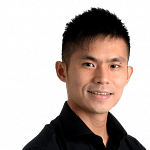SINGAPORE - Multiracial societies around the world have some arrangement or other to ensure that minorities are represented at the highest levels, Prime Minister Lee Hsien Loong said in a TV interview on Sunday (Sept 4) night.
"There are ways of doing it. We have a unique system but we can find a way to do it," he added.
He cited three countries which have unique adjustments: Canada, New Zealand and Switzerland.
In Canada, both English and French are official languages and French speakers make up some 22 per cent of the population.
But when it comes to choosing the Governor General - who is the representative of the head of state, Queen Elizabeth II - they alternate between English and French speakers.
"It's an over-representation for the French speakers but it's something which they find necessary as an accommodation for the minority," Mr Lee noted.
Canada's Governor General from 1999 to 2005, Hong Kong-born journalist Adrienne Clarkson, was succeeded by Haitian-born and French broadcaster Michaelle Jean, who in turn was succeeded by academic David Johnston in 2010.
In New Zealand, which has an indigenous Maori minority and has become more diverse with significant immigration from Asia, the previous Governor General, Sir Anand Satyanand, who held the post from 2006 to 2011, was ethnic Indian.
"He was a lawyer, his mother had come from Fiji, and he was born in New Zealand," Mr Lee noted.
The current Governor General, Sir Jerry Mateparae, is "a very distinguished Maori", having been a Chief of Defence Force. "They choose a good man but they also make an effort to choose a person who's from a minority group," he added.
As for Switzerland, the head of state is not one person but a federal council comprising seven people who represent different languages and regions of Switzerland.
Mr Lee noted that there are currently four German speakers and three French speakers on the council, and the post of President - currently held by Mr Johann Schneider-Ammann - is rotated annually from among that group.
Otherwise, the Swiss-Germans, who make up two-thirds of the population, would be at an advantage over the Swiss-French or Swiss-Italians, Mr Lee said.


